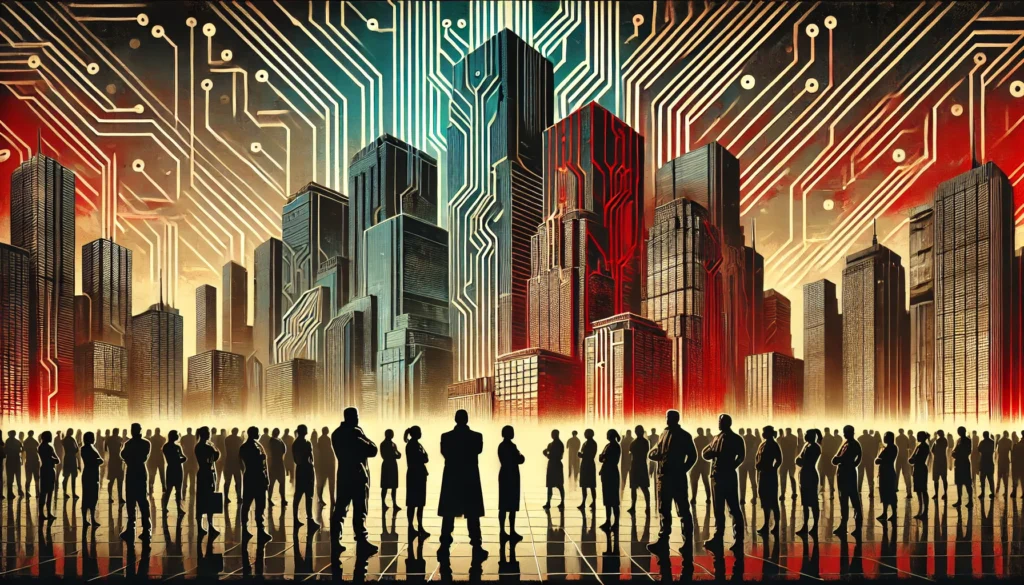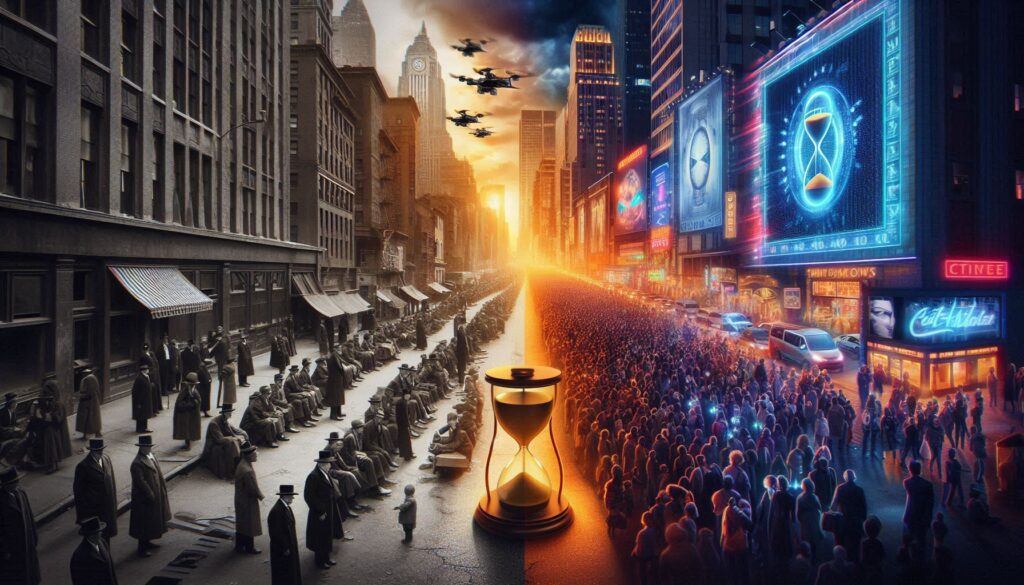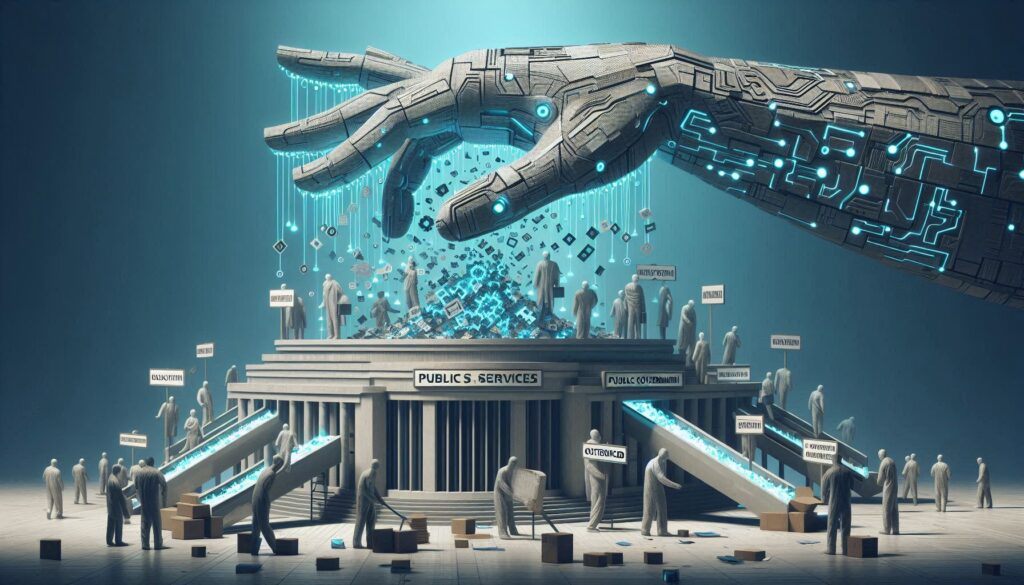
A recent piece in the Financial Times poses a provocative question: How will artificial intelligence disrupt our world?
“How AI Will Transform White-Collar Jobs,” Financial Times
Reflecting on the 1990s, we recall a period defined by a booming tech sector and fervent globalization. Industries like steel and textiles saw their work migrate overseas, leaving entire communities uprooted. This economic upheaval, coupled with a growing distrust of establishment politics, paved the way for the rise of populist figures such as Donald Trump in the United States and nationalist movements across Europe.
Today, the tech sector itself may face a similarly drastic shift. Leaders at NVIDIA and Meta are openly discussing the possibility that AI could replace large numbers of software engineering roles—once considered ironclad. In other words, the very field that symbolized the economy’s future is now on the cusp of its own disruption.
Anxiety in the Tech World
Over the past two decades, software engineers and data analysts have enjoyed a level of job security and market demand that seemed unassailable. However, advanced AI systems are now able to write, test, and optimize code more efficiently and at far greater speeds than before. Where once you needed entire teams to complete a software build, AI can fill those roles for a fraction of the cost—albeit with some human oversight.
Untangling the Corporate Power Puzzle
Beyond the tech sector, dissatisfaction with large corporations has been building across various industries. The Wall Street Journal delves deeper into this sentiment:
“Untangling America’s Love-Hate Relationship With Corporate Power,” Wall Street Journal
Historically, Americans have both praised and resented large companies. On one hand, big business is celebrated for innovation and economic growth; on the other, it’s criticized for monopolistic practices, worker exploitation, and prioritizing profits above social well-being. This tension intensifies in times of economic or technological transition. As corporate giants rush toward AI integration, the seeds of distrust—already present—threaten to grow further.
- Profit vs. People:
The WSJ piece highlights how public sentiment shifts when corporations focus more on shareholder returns than on cultivating a healthy relationship with employees and consumers. AI-driven cost-cutting might boost short-term profits, but it can also erode trust and long-term loyalty. - Innovation vs. Inequality:
Major corporations often lead the way in adopting groundbreaking technologies, spurring overall economic progress. At the same time, technological change can widen the gap between the skilled and unskilled, the wealthy and the working class, intensifying social divisions. - Corporate Accountability:
The WSJ article underscores a lack of accountability mechanisms when corporations become too big to challenge. With AI in the picture, some worry that human labor’s bargaining power will diminish even further, fueling discontent.
A Tectonic Shift in the Workforce
What we’re witnessing could be more transformative—and potentially more destabilizing—than the 1990s wave of manufacturing disruptions. The Financial Times notes that the white-collar workforce is significantly larger and more diverse than the manufacturing base was then. Replacing engineers, data analysts, or digital marketers en masse could spark an even greater upheaval.
An Imbalance of Power
While AI shows boundless potential, control of this technology resides mostly with a handful of mega-corporations. This imbalance risks deepening existing inequalities. Unless public institutions and policymakers step in, the lion’s share of AI’s economic benefits may flow to corporate shareholders, leaving displaced workers scrambling for new roles in an ever-shrinking pool of jobs.
The Question of Adaptation
Is this the inevitable price of progress, or can we channel AI’s power for the public good? As with past waves of disruption, there will be winners and losers. The key lies in how we handle the transition.
- Education & Retraining:
Policymakers, universities, and businesses need to collaborate on robust programs that allow employees to pivot and reskill. New roles will emerge—whether in AI monitoring, data ethics, or specialized consulting—that demand a different set of competencies. - Regulatory Oversight:
AI adoption should be transparent and regulated, ensuring ethical usage, fair labor practices, and safeguards against excessive corporate dominance. - Corporate Responsibility:
As the WSJ article reminds us, public sentiment sways between respect for corporate innovation and anger at corporate overreach. Companies that choose to prioritize human capital—through fair wages, career development, and ethical AI usage—could help rebuild dwindling trust.
The Way Forward
The Financial Times article on AI-driven disruption warns of seismic shifts in white-collar jobs, while the Wall Street Journal explores why discontent with corporate America is at an inflection point. Though “Luigi Mangione’s exposé” is fictional, it resonates as a microcosm for broader anxieties:
- Will AI heighten systemic inequalities and fuel further corporate mistrust?
- Can we find creative, collaborative ways to integrate AI without devaluing human expertise?
At Truthseekers, we believe this moment calls for vigilance and active engagement: from policymakers who set guardrails, to educators who reimagine learning, to corporate leaders who balance progress with humanity. The coming wave of automation is formidable, but it can also serve as an opportunity—an inflection point—if we choose inclusivity, fairness, and shared prosperity over short-term profit.
Recommended Reading
- “How AI Will Transform White-Collar Jobs,” Financial Times
- “Untangling America’s Love-Hate Relationship With Corporate Power,” Wall Street Journal





The amount of AI generated hero images IS TOO HIGH!
Make them better or stop using them. So ugly!
Thanks for the feedback, gonna look at our use of images again to see how we can make them better.